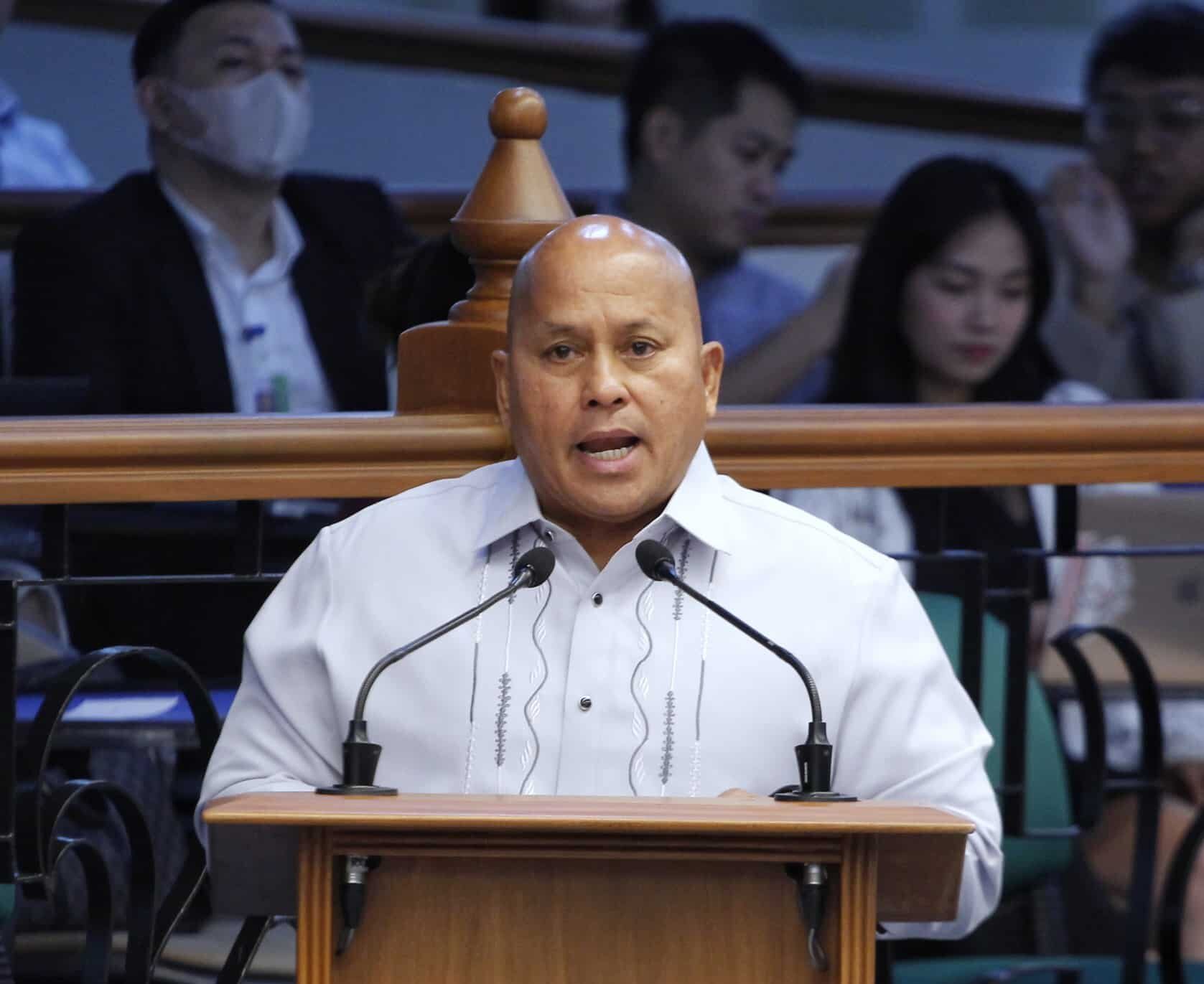
Sen. Ronald “Bato” Dela Rosa — (Senate Public Relations and Information Bureau)
MANILA, Philippines — Human rights lawyer Jose Manuel “Chel” Diokno on Friday urged House lawmakers investigating the drug war of the Duterte administration to also focus on a 2016 Philippine National Police (PNP) circular that ordered the “neutralization” and “negation” of drug suspects.
Diokno, chair of the Free Legal Assistance Group (FLAG), said the PNP’s Command Memorandum Circular (CMC) No. 16-2016 operationalized the drug war and was issued by then PNP chief and now Sen. Ronald “Bato” dela Rosa.
The circular outlining the PNP’s anti-illegal drugs campaign called “Project: Double Barrel” was issued on July 1, 2016, just a day after then Davao City Mayor Rodrigo Duterte took his oath as the country’s 16th president. It highlighted Duterte’s promise to rid the country of illegal drugs in just six months.
Diokno said the neutralization and negation of suspected drug offenders are not part of the PNP’s mandate.
“What is in the law is for them to be arrested and charged before the court,” he said.
It’s the language
The head of the oldest human rights lawyers’ organization in the Philippines pointed out that the language of the circular was consistent with the testimony of Police Lt. Col. Jovie Espenido, who earlier told the quad committee that such terms, alongside the word “eliminate,” was commonly understood by most police officers as “doing it by all means, including killing.”
The word neutralization is mentioned at least four times and “neutralize” once in the 23-page circular. In Section 2, it stated that Project: Double Barrel would support the Barangay Drug Clearing Strategy of the government and “the neutralization of illegal drug personalities nationwide.”
In Section 5, the CMC stated that the PNP “intends to equally address the drug problem in barangays and at the same time pursue the neutralization of illegal drug personalities as well as the backbone of the illegal drug network operating in the country.”
The CMC specifically directs chiefs of police and anti-illegal drug units to conduct “clearing of drug-affected barangays by focusing on the neutralization of street-level drug personalities” in their areas of operation.
It also said that any person suspected to be involved in illegal drug trafficking but disagrees with the so-called house to house visitation, or more notoriously known as “tokhang,” would be referred to the antidrugs unit “for immediate case build up and negation.”
It directs the formation of “focus teams” to, among other tasks, “neutralize high-value and street-level targets” and their support systems, including drug lords, their protectors, coddlers and other supporters.
Formed last August, the four-panel inquiry committee is looking into the connections between the illegal drug trade, Philippine offshore gaming operations (Pogos) and extrajudicial killings in the drug war during the Duterte administration.
Most of its 12-hour hearings are focused on identifying the most responsible in the criminal activities involved. So far, the highest-ranking officials the quad committee had pinned down are former presidential spokesperson Harry Roque, National Police Commissioner Edilberto Leonardo and former Philippine Charity Sweepstakes Office and ex-Cebu police director Royina Garma.
But not much attention has been given to the policies underpinning both the drug war and Pogos, which would explain why the CMC has yet to be tackled by the committee.
At a press conference, quad committee cochair and Surigao del Norte Rep. Robert Ace Barbers said this was partly due to “new revelations of some new malfeasance” which they encounter “every week.”
He cited a letter from former Iloilo City Mayor Jed Mabilog, who fled into exile in the United States after he was tagged as a narcopolitician by the Duterte administration, asking to speak to the quad committee.
“We can’t exactly ignore that,” Barbers said.
Manila Rep. Bienvenido Abante, who heads the House human rights panel in the quad committee, said he was “still in a quandary” about when they would end their hearings..
“On one hand, we’re close to filing (candidacies for the 2025 elections),” Abante said. “But we’re really hoping to craft better legislation after this. At the same time, we would also like to know the truth and help in prosecution so that the public will know what is really going on.”
On that, Diokno suggested that the lawmakers consider having a death investigation system law to avoid a repeat of the previous administration’s bloody drug war.
“Until now, we don’t have a law that requires autopsy for those who were killed under suspicious or mysterious circumstances. We should have a comprehensive law on death investigations,” he said.
Such a law, Diokno said, should establish a crime and forensic laboratory that is independent of the PNP chain of command so that the police could not influence the investigation of a particular case.
At the same time, he emphasized the need for a PNP Discipline Act to instill discipline among officials and members of the police force, noting that the current disciplinary system was overly complicated.
He also suggested that in the appointment and promotion of PNP members, the officers concerned should be required to seek a clearance from the Commission on Human Rights.